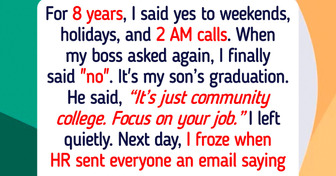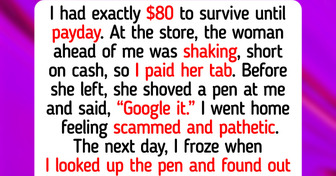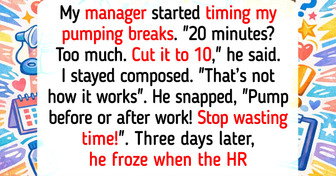I Let My Sister Borrow Grandma’s Ring at My Wedding—And That Was My Worst Mistake

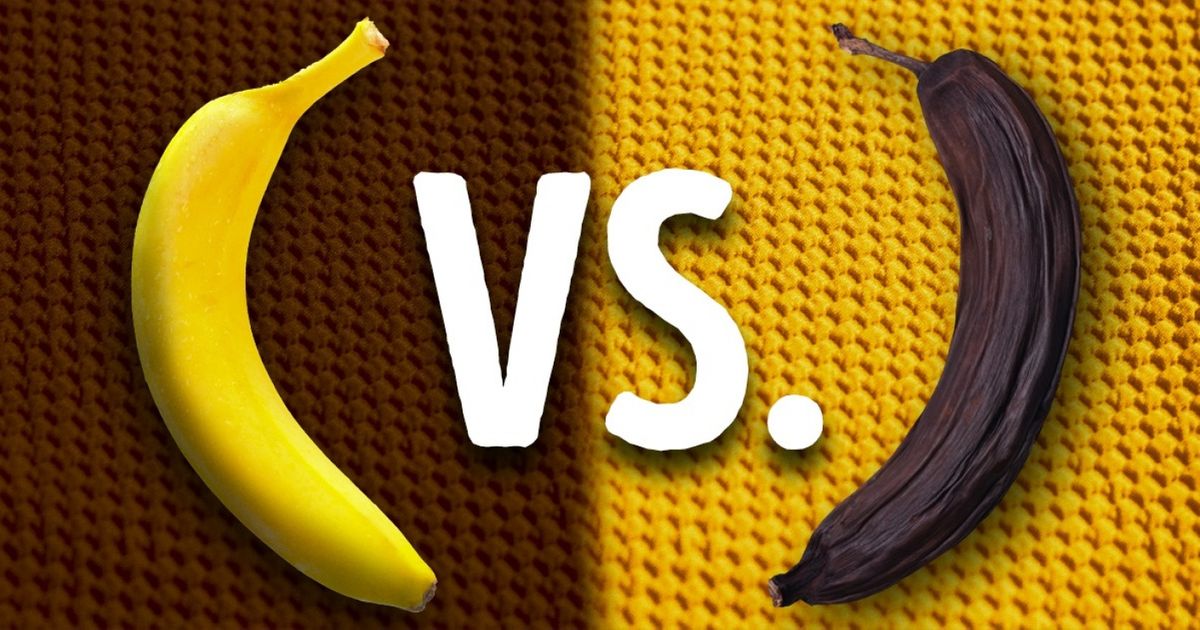
Have you ever looked in the refrigerator or the cupboard and been confronted with fruits and vegetables that are no longer fresh, or are even no longer edible at all? We all make this mistake, and it doesn’t bear thinking about how often it happens and how much money we waste on food which we ultimately throw in the trash.
But there are plenty of ways you can avoid this situation.
We at Bright Side have found some of the very best tricks you can use to keep fruits and vegetables fresh.
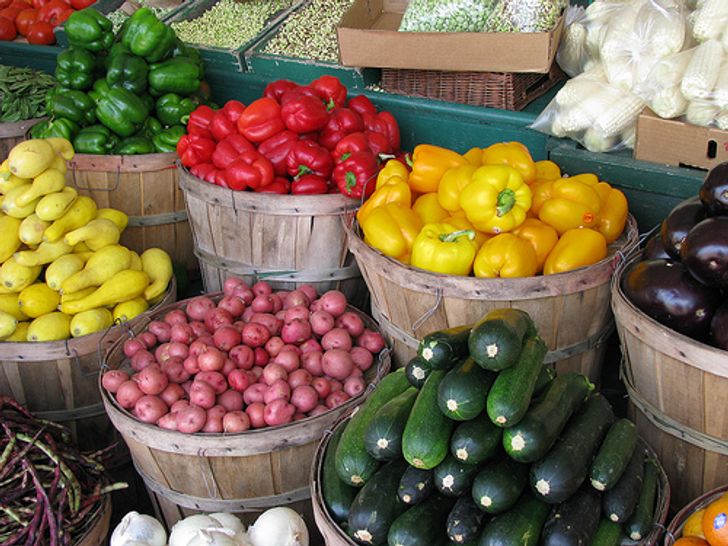
It may sound strange, but it’s actually better not to wash fruits and vegetables before storing them in the refrigerator or cupboard. If something is dirty, just wipe it clean with a dry cloth or tissue. Washing it can remove its natural defense against getting moldy and rotting.
Moisture only encourages something to get moldy. A good trick to counteract this is to place a paper towel inside the container holding the fruits or vegetables — it will absorb excess moisture and prevent the product from rotting.
An unripened avocado should be placed in a thick paper bag or wrapped in newspaper and kept at room temperature until it’s ripe. After this point, place it in a plastic bag and keep it in the refrigerator.
Bell peppers, cucumbers, and tomatoes should be stored at room temperature. Peppers lose their springy consistency if kept in the refrigerator, while cucumbers and tomatoes can turn slimy.
Fruits and vegetables should not be stored in the refrigerator until they’ve ripened. Otherwise, they’ll go rotten much more quickly.
If bananas are stored in the refrigerator, they quickly turn black and lose their taste. It’s best to keep them at room temperature but with the stem wrapped in plastic food wrap.
You can actually keep freshly sliced or peeled vegetables such as carrots and celery for a long time in the refrigerator. To do this you need to place them in containers with a small amount of water.
The lower the temperature, the harder it is to retain the aroma and freshness of fruits and vegetables. If you want them to taste great for longer, store them in the part of the refrigerator where the temperature is slightly higher.
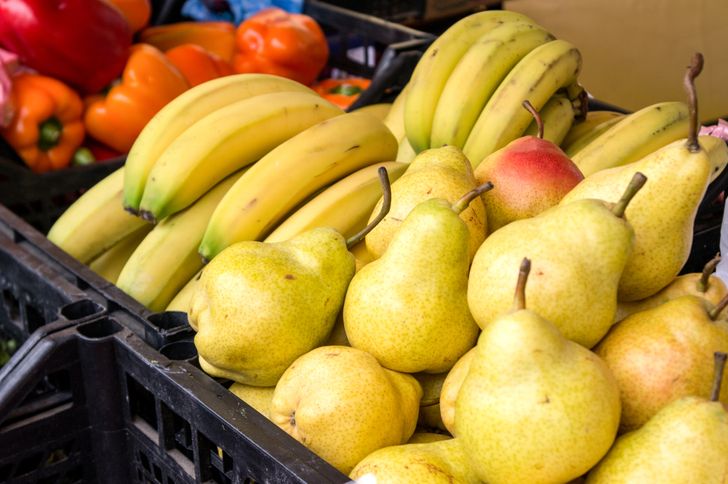
Certain kinds of fruits and vegetable begin to actively give off ethylene once they’ve ripened. These include bananas, apricots, melons, pears, plums, mangoes, and tomatoes.
Other kinds of fruits and vegetables are sensitive to ethylene, including apples, eggplants, watermelons, potatoes, pumpkins, carrots, and broccoli. If placed close to the first category, they begin to rot at a rapid rate. So it’s best to store these two groups separately from each other.
If you store onions and potatoes in one place, the former will begin to sprout shoots and will become inedible.
The best friend of garlic and onions is darkness. If you haven’t got a large unlit area available, you can put them in paper bags with several small holes punched through for air. That way you can store them pretty much anywhere and at the same time fulfil their need for darkness.
You should never store potatoes where the sun shines directly on them. They not only start to rot, but they can become dangerous. It’s better to store them in a dry, dark place or in wooden or plastic boxes and/or baskets.
If you put one or two apples in with your potatoes, the latter will stay fresh for longer.
Asparagus should be kept in a glass filled with water, as you would arrange a boquet of flowers. That way it will stay fresh for longer.
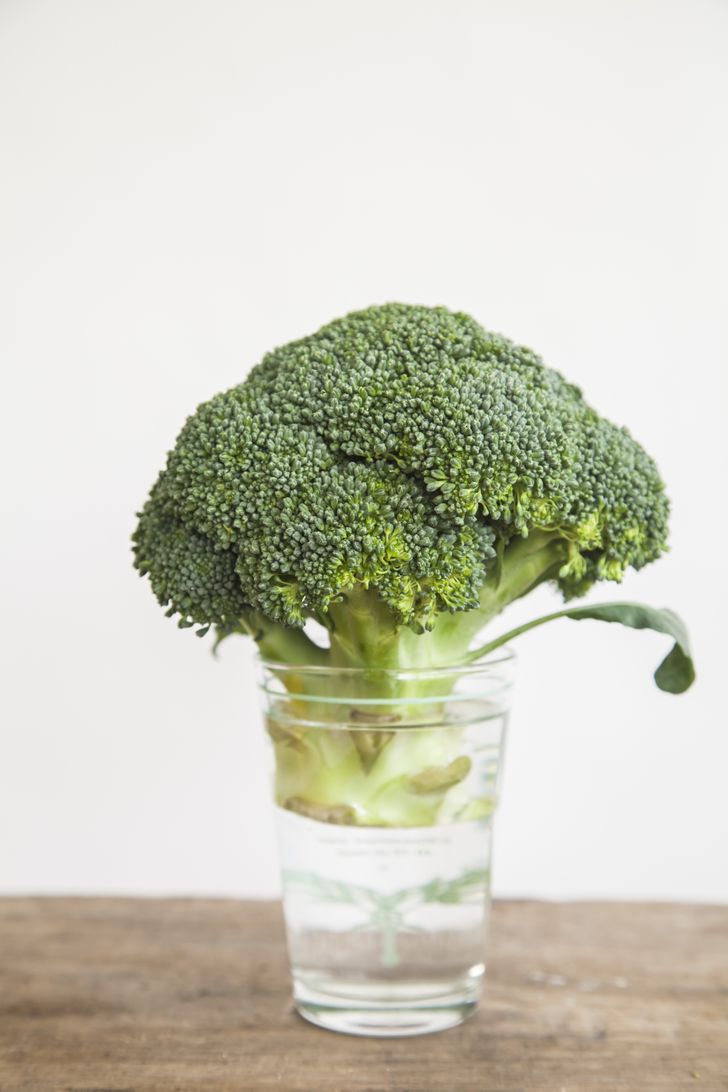
Broccoli is best stored by keeping the stem in fresh water and covering the upper part with a wet towel. The water should be changed regularly and the towel dampened often.
Cauliflower should also be wrapped in a wet towel, or in plastic food wrapping with several holes punched in it for ventilation.
Vegetables shouldn’t be kept hidden away in a cupboard. They’ll spoil faster than normal under such conditions.
Instead, it’s best to store them in wooden or plastic boxes with good ventilation, or in fact anywhere where they can benefit from a flow of air.
Celery will last longer if wrapped in tin foil and kept in the refrigerator. It will lose its taste and consistency if kept in plastic.
The area around the stem is the most delicate part of a tomato. This is the area where they start to decay. So store them with the stalk facing upwards, and they’ll last longer.
Grapes won’t spoil as fast, and will also stay juicy and fresh, if you put them in polyethylene bags or plastic food wrap and place them in the refrigerator.
Also, don’t store them in one huge bunch — that way the ones at the bottom will become crushed.




